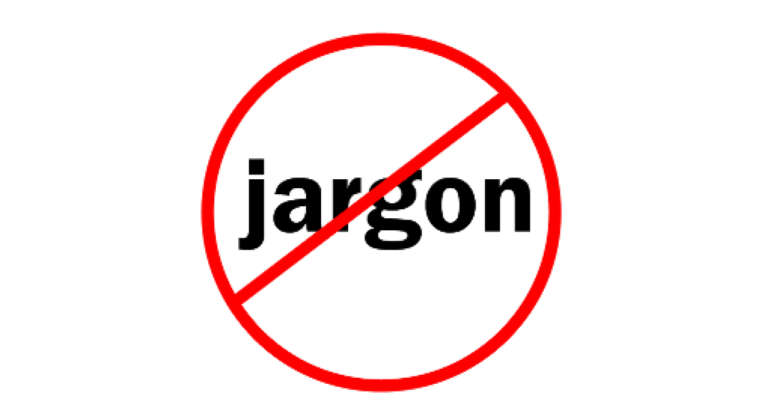The Triumph Classic Public Relations Series. Fundamentals of Crisis Management.
Everybody blows it sometimes. Not everybody does so in a spectacularly public fashion. If you have received negative coverage, there are some principles that if adhered to, will minimize and repair damage to your public reputation.
It does not matter if you are the subject of one unfavorable story or many. You have your work cut out for you with the media and the public.
The worst thing you can do is to make reporters angry and curious at the same time; they will just dig further. If you have opponents or competitors, they will fill the information vacuum and define you. Do not hide behind a “no comment” and hope that it will all just go away. It won’t.
The best thing you can do is to respond or even preempt it. Get to the bottom of the problem that is being exposed and make genuine changes. Bad press is painful. Regard the occasion as somewhat of a “memo pad”. Prepare to set your ego aside. Altering your course is necessary, as the world is telling you, and the press and public will alert you to exactly how if you listen.
Bad coverage may be unfounded. You still have work to do.
You can never “spin” your way out of a history of willful bad practices. You can’t hide them forever. The best way to repair a damaged reputation is to become worthy of a good reputation.
When it “hits the fan”, you need to clean the fan, fix the fan or replace the fan.
Principles of public relations crisis management
1. Resist combative instincts, and tell your staff to resist them too. The last thing you need to see on the evening news is footage of yourself or someone in your organization pushing a reporter, cursing at one, or extending a middle finger at a camera. Such a reaction in one moment of emotional intensity WILL define you in a way that is very hard to change.
2. Use direct communication with important publics. If you must go to the local Chamber of Commerce to explain yourself, do it. If you must approach government officials, do it. You may need to address it directly with your best customers. Whatever your most important publics are, stepping up and addressing it forthrightly is the shortest route to reputation repair. You may even find yourself in a stronger position when the problem passes.
3. Avoid the bunker mindset. Do not say “no comment” or refuse to respond. The public will view this as either cowardly, evasive, or both. Often, legal counsel will advise you to keep silent. They do this out of caution and to protect your position in the event of legal action. However, there is usually something you can say or do. Give the media something. There is a bigger picture that your attorney should recognize.
If your organization has created a damaging situation, err on the side of restoration. Doing so may actually prevent legal action from occurring, or minimize its effects. An attorney’s world view is from a perspective of protecting a client in court. Everyone else’s is based on self-interest and the public’s is based largely on common sense. These world views are sometimes in conflict. A leader has to balance them.
4. Know when to use strict message discipline. When confronting hostile media, message discipline might be in order. Develop talking points and questions and answers (Q and A s) with help of legal counsel, public relations professionals, or other trusted members of your inner circle. If there is intense media interest, you can distribute a press release and Q and A s to reporters.
If they want a statement and you do not deviate from the release and Q and A s verbatim, that is strict message discipline. For example, the answer to every question might be, “we are investigating it fully and will decide what action to take once the investigation is complete.” The advantage to this approach is that reporters will have no other quote from you other than what you have carefully chosen in advance. There will be no room to misquote you. All of the facts are not known right now, and that is fine. But when they are, make them available if requested. If you commit to provide the media with the results of an investigation when it is finished, you need to follow through as promised.
Strict message discipline is normally appropriate if criminal charges are pending. Avoid releasing someone’s name to the media unless that person has actually been charged with a crime. Strict message discipline is also appropriate to protect a proprietary secret. Such secrets can include product formulas, business strategy, cost per unit, salaries, etc. Generally, media respects such boundaries, and such information is often protected by law anyway.
Strict message discipline is not necessary when releasing good news such as a new product or contract, charitable events or works, or anything an organization wants to showcase. If a reporter wants to write a feature on you or your organization, you should be welcoming, granting as much access as the reporter needs. Strict message discipline is certainly not needed for human interest stories.
5. If you have taken time to cultivate relationships with reporters, contact them to pre-empt a crisis or emergency event. Public relations are a relationship business like anything else. If you have worked with a reporter in the past and found that reporter to be balanced and professional, you should seriously consider reaching out.
Furthermore, understand a reporter’s needs. They strive for professional advancement, and exclusive details, exclusive interviews, and exclusive stories help them. The news business is competitive and this is something you can use to your advantage. If you provide a reporter with something their competition does not have, they will remember it. Don’t expect a “friend” in the press, but you can cultivate allies.
It works in reverse too. Reporters need you sometimes. While serving as the public affairs director at a large and famous Marine Corps base, we received many reporters on a weekly basis. I always had my office issue press releases to local media for events our commanding general wanted coverage for. Such events included parades, dignitary visits, demonstrations, concerts by the marching band, etc. There were some reporters and news outlets that were supportive and never failed to cover them. There were others that consistently ignored our press releases and follow up calls.
Many local reporters can be enjoyable to work with. They seem motivated by a genuine interest in community, and the people and institutions of the community. Such interest is reflected in their approach to reporting and in the stories they publish or produce. Others are not enjoyable to work with. They approach the job with a sense of professional entitlement bordering on arrogance. They interrupt, they ambush, they demand, and barge into places uninvited with cameras and microphones. You can spot them a mile away. At a press conference or news event, they are the ones fighting for position and even blocking cameras from competing news stations.
From time to time, unfortunately, Marines would commit crimes outside of the base. There were also incidents of sexual misconduct that media would catch wind of. There were incidents of death or serious injury to personnel, and there were many connections between our base and war in Afghanistan and Iraq.
All of these things resulted in intense media interest. The reporters that had taken time to cover our parades and concerts were reporters we had come to know and had a constructive relationship with. We knew they would treat us and our Marines fairly. They got the exclusives and the access they needed.
How about the ones who blew us off before? Predictably, they appeared and demanded details and access. Their demands were met with a faxed press release and some Q and A s, and little else. We hate to admit it, but on some level, we all play favorites.
6. Have a plan in advance. Your success is based on advance planning. Your competence will be on display. The competence of your staff will be on display. Your success will also be based on past successes and failures. In other words, your credibility will determine your success. It will also be based on relationships you already have with media.
Credibility is like money in the bank. Make deposits, and it draws interest. The more that is in the bank, the more interest earned. In fact, a good reputation can bring credit even when it is not actually warranted. A crisis can be a time to make withdrawals, but it can also be a time to make large deposits. That is done through decisive action and as much transparency as possible.
If you handle a crisis properly with the public and the media, you will earn MORE, not less credibility. That is the goal.
You never know when something bad can happen. Your fortunes can change direction on a dime. If you and your organization have your act together, you can be confident that you will emerge from a crisis with an intact reputation. A good public relations firm can help. Choose carefully.
Take time to assess yourself today. Take the “Investigative reporter test”. If an investigative reporter calls, would you be ready? Would you welcome them? If not, make the necessary changes.
If information about you is turned loose, does it help you or hurt you? If you don’t want it in the newspaper, don’t do it.
Private triumph always comes before public triumph.




